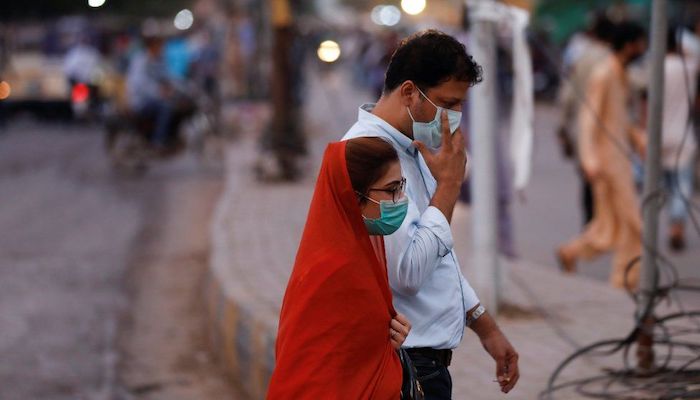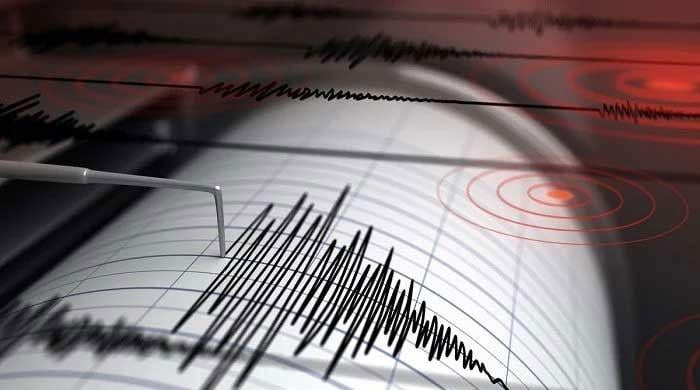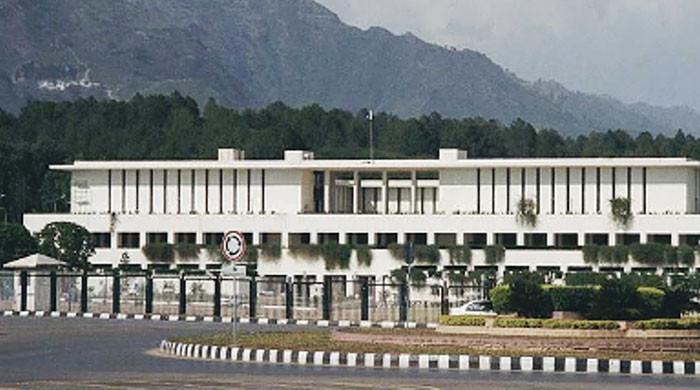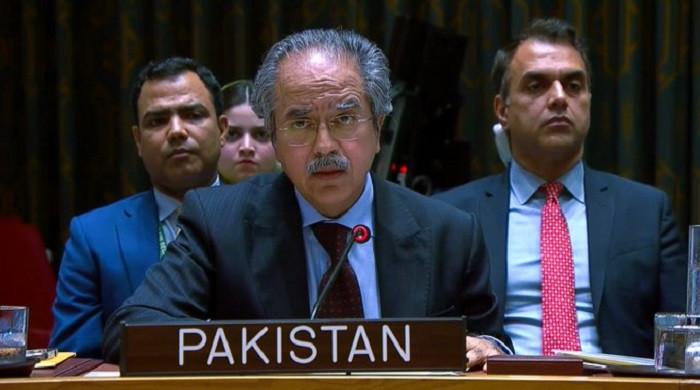Over 2,500 coronavirus deaths reported in Karachi so far
Pakistan's COVID-19 death has climbed to 8,905 as the virus claimed 73 lives in the past 24 hours
December 15, 2020

- 73 new deaths in the last 24 hours across the country
- 2,459 new cases detected
- Highest prevalence observed in Hyderabad, Karachi and Peshawar
ISLAMABAD: With the country grappling a second wave of infections, the death toll from coronavirus has climbed to 8,905 as the virus claimed 73 lives across Pakistan in the past 24 hours.
The most number of deaths have been observed in Karachi as 2,573 people have died of coronavirus so far. Lahore has reported 1,359 deaths, Peshawar 714 and Rawalpindi 562.
Data issued by the National Command and Operations Centre showed on Tuesday that 2,459 people tested positive for the novel coronavirus out of the total 34,551 PCR tests conducted on Monday, bringing the national positivity rate to 7.12%.
The most COVID-19 prevalence has been observed in Hyderabad as 22.45% of its PCR tests came out positive, closely followed by Karachi at 19.89% and Peshawar with 19.04%.
Sindh and Balochistan have the highest positivity rate of 14.9% and 14.2%, followed by Azad Jammu and Kashmir with 9.4% and Khyber Pakhtunkhwa at 7.2%. Islamabad's positivity rate is 4.3%, Punjab 3.8% and Gilgit Baltistan 0.5%.
The country's cumulative infections tally has climbed to 443,246 with 48,008 active cases - of whom 2,495 patients are in critical condition.
Pakistan's mortality rate remains at 2.0% compared to global rate of 2.22%. With 87.1% of the COVID-19 patients surviving the virus, Pakistan has one of the highest recovery rates.
Globally, a total of 72,849,650 infections have been reported with 1,621,154 deaths and 41,257,161 recoveries.
Read our daily COVID-19 report
Bids to contain virus
With the rising spread of the virus, the federal government on December 9 warned it would shut down more sectors if the public continued to violate coronavirus SOPs.
Federal Minister for Planning and Development and NCOC chief Asad Umar said there was a rapid increase in infections during the second wave as the public was less serious than it was during the first wave.
He warned that if the virus is not contained, the government may decide to close down more sectors and impose stricter restrictions in two weeks time.
The federal government has already made face masks mandatory in public spaces, limited large public gatherings to 300, banned indoor weddings, closed shrines, cinemas, and theatres, and instructed public and private offices to adopt work-from-home policy and 50% occupancy.
The federal government has also announced that educational institutes will remain closed from November 26 to January 10. The students will study at home or get weekly homework till December 24 and winter vacations will start December 25. The schools will reopen on January 11 - which is subject to coronavirus situation then. All examinations have been postponed except admission and recruitment tests.
Furthermore, all provinces have banned indoor dining and limited timings for markets, shops, and shopping malls. Many areas in the country have been placed under smart lockdowns.











